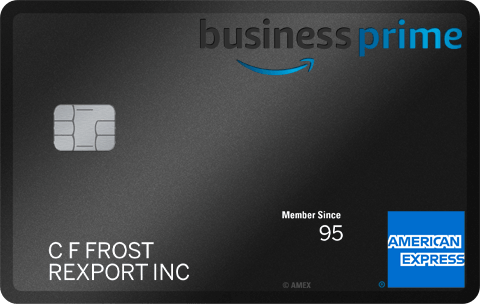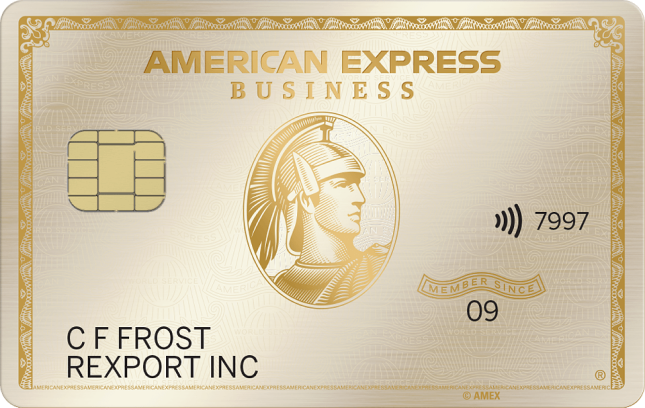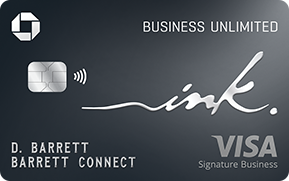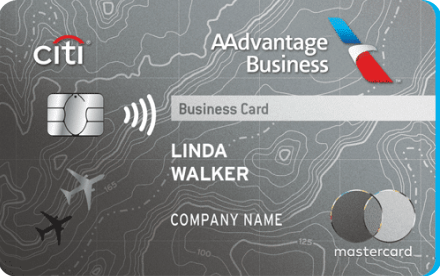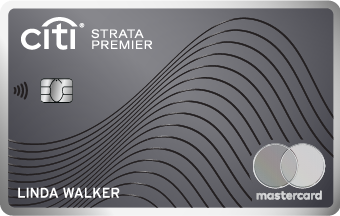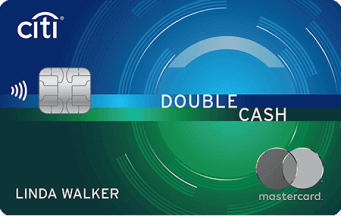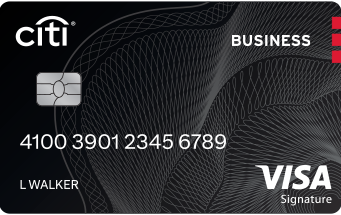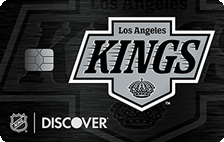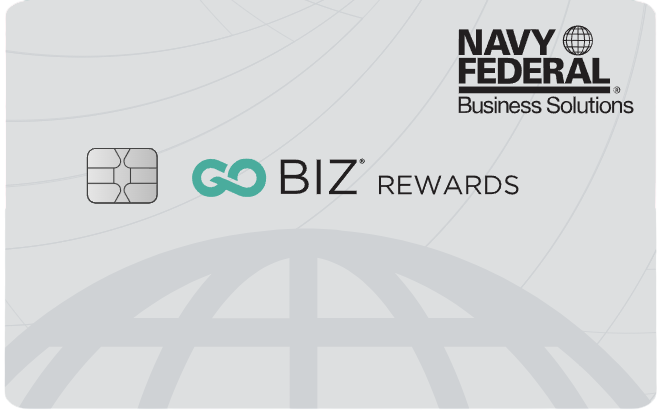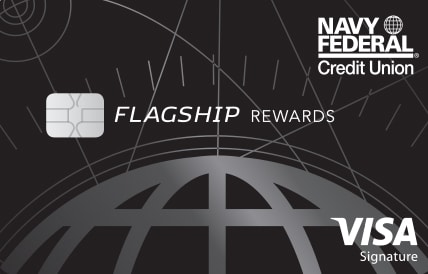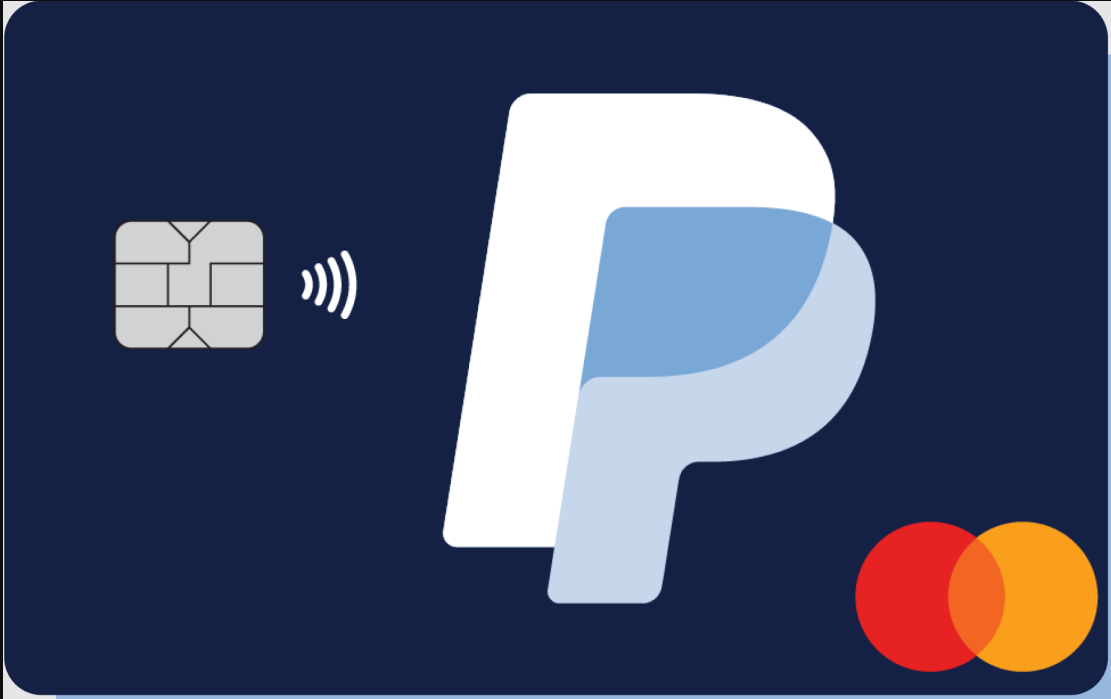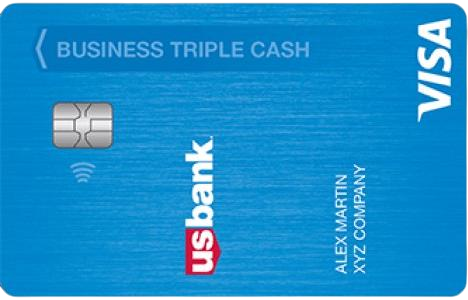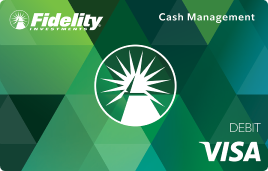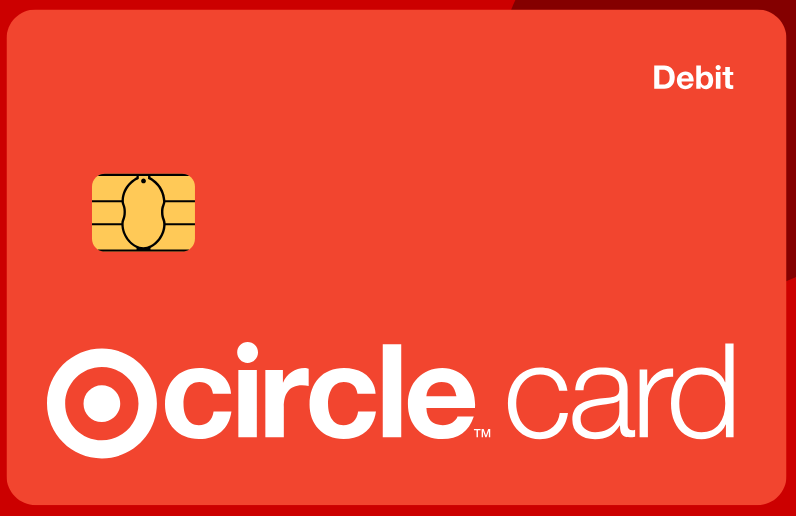- myFICO® Forums
- FICO Scoring and Other Credit Topics
- Personal Finance
- How would you pay off $75,000 in revolving debt?
- Subscribe to RSS Feed
- Mark Topic as New
- Mark Topic as Read
- Float this Topic for Current User
- Bookmark
- Subscribe
- Mute
- Printer Friendly Page
How would you pay off $75,000 in revolving debt?
Is your credit card giving you the perks you want?
Browse credit cards from a variety of issuers to see if there's a better card for you.
- Mark as New
- Bookmark
- Subscribe
- Mute
- Subscribe to RSS Feed
- Permalink
- Report Inappropriate Content
Re: How would you pay off $75,000 in revolving debt?
Also wanted to note that NFCU has no balance transfer fee on any of their cards. Sounds like you already closed your Plat, but they are also usually willing to give a 0% APR rate period if you call and ask. Not sure if you will get another intro promo if less that a year since already opening a Plat. Generally their balance transfer policy now is only for moving to a card to "intend" to do a BT with (or at least tell them that).
Comb through all of your bills, identify what is being spent (not just totals, but what was purchased?). Get rid of anything that isn't a dire need. Sell anything you can, including any "fun" vehicles and/or downsize any expensive vehicle for something cheaper but reliable. Close subscriptions, shop for groceries at places like Aldi, Costo, etc.
Budgeting will involve everyone in your household's spending and saving/paying to be on the same page.
- Mark as New
- Bookmark
- Subscribe
- Mute
- Subscribe to RSS Feed
- Permalink
- Report Inappropriate Content
Re: How would you pay off $75,000 in revolving debt?
@KatzNDawgs wrote:Hold up, all this debt is in your wife's name for your debt
I respect your concern in regards to thinking someone might be foisting their problems onto someone else, and I admire you for calling it out, I really do. It might be in her name, but morally and ethically it's our responsiblity and the debt will sit where it makes the most sense financially, while we work out the best way to pay it down.
@KatzNDawgs wrote:Ishe didn't know you are desperate to pay it off? Is she aware of the dire situation?
You bring up a fair concern and it seems you're worried I might be taking advantage, so I'll explain a little better in the hopes you and others understand and are more apt to give some feedback on how to manage this better.
When we met in 2017, she had a large amount of revolving debt (20k and massive student loans) compared to our income at the time. When she finished school for her masters in public admistration, she took a unpaid internship for another year. She got hired full time after a year, making 32k a year.
When she told me her debt and explained how she was barely getting by about a year from our wedding, I then went to work at a steel mill and paid off the debt by working 2:30 PM to 4:00 AM, 7 days a week but taking every other Sunday off to sleep all day before I'd start the cycle again. In 8 months, I paid off her debt and paid cash for our wedding with savings left over while also knocking out a few of her smaller student loans.
It was the best investment I've ever made, I've never been more confident about anything. I keep a copy of the W2 from 2018 and last two pay stubs from that run in my desk somewhere, I used them to open my second credit card at the local credit union a few months later in the hopes go for a mortgage.
Covid happened, some deaths and then medical bills piled up and the savings was gone and we were worse than when we started. The bullsh' waned off and the debt stopped climbing about two years ago, but we were buried and could only make minimum payments until just recently.
@KatzNDawgs wrote:Really need to be a team with this and take your debt back ASAP. What are her scores at?
After we were squared up on her original 20k of debt, I got the best advice I was ever given by anyone at our wedding from a grandfather. Not sure why he thought to give it, but he told me no one person should be in charge of managing the household finances because if stuff starts going wrong, you can only blame that one person. It's not fair he said to put it all on one person. It was great advice, because when it all went to **bleep** later down the road, we were a team about it.
There's a lot of communication and trust here, the debt is where it needs to be for now. Rushing it out of her name when a fair portion is sitting at 0% and the rest is on the lowest APRs available to us is not a wise choice to make without a plan. That's what I'm working on now.
I hope she is aware of what I'm working on because I tell her everything before I do it but most importantly, she was the one making sure all the minimum payments were getting taken care of the last two years while I took on a new career and went to school full time. I really hope she's been listening and her memory isn't that short lol.
@KatzNDawgs wrote:What are her scores at?
Equifax Fico 8 - 724 - Chase/Cap1 HPs in December
TransUnion Fico 8 - 715 - Amex/Cap1 HPs in December
Experian Fico 8 - 723 - Discover, Cap1 & Amex HPs in December, BoA HP in January
Two new accounts since December, one in January. Those would be the 0% promotional accounts. Across those three accounts at 0% and the two NFCU accounts, they're all at 80% utlization. We're prioritizing finances over FICO on her profile for now.
Revolving Utilization: 43%
AAoA - 10 years, 1 month
AoYA - 1 month
Revolving accounts: 19
A lot of student debt being reported still and large balances, but there hasn't been any payments due on that in years due to covid and political stuff. It counts towards DTI still though. She just hit her 10 year mark on her public service student loan forgiveness. I don't understand how it works well, but I know government and even if she's not having to make payments, it'll take a lifetime to get finalized.
@KatzNDawgs wrote:you make significantly more than her
Two years ago I made significantly less, she scaled up very quickly after marriage. With her better credit history and income two years ago, we made a calculated decision to keep the debt with her in the event we had to file bankruptcy and then we kicked the can since.
I quit my steel worker job when we made that decision and started an apprenticeship in a powerhouse. In 11 states, companies are required to have a full time operating engineer monitor high pressure boilers and steam turbines. While I finished my apprenticeship/school for that, I stacked a handful of other vocational licenses at the same time. I started taking tradional mechanical/eletrical engineers courses at the community college when that was done. I may not be working 90+ hours a week, but it's worse now than it was then.
After I finished my apprentichip, got my license and the several other vocational licenses, I took a new job and matched my wife's income, I then leap frogged her significanlty six months ago after I bullied my employer into significant raise five months into employment. It was an enormous gamble that deep in debt, but it was bankruptcy or more money.
Pyramiding debt and kicking it down the road with no plan leads to failure, so the plan was to pick a STEM trade where I'd get paid for what I know and not how much I sweat to chase more money without breaking my back as a steel worker. We both understood it was bankruptcy if we failed. I was very scared, but it's done and it worked out.
Our belts are as tight as they've ever been the last two years and I've spent the last two months making them tighter. We sat down in November to figure out how to pay for the next year of school for me, we saw we had the cash to just pay it out right from just the last six months... It'd take all our emergency savings, but we did it anyways.
I had her give me everything in regards to account log in details and I've spent the last two months moving debt around to the lowest interest rates available, saving a fortune, while organizing how everything is paid and researching compulsively how to further maximize a pay down as quickly and efficently as possible.
It looks like if we keep our belts tight like the last two years, we'll be out of it in 20 months. I can shave off a few more months by moving the higher interest debt back to me and working more overtime. The OT is difficult, it's available but I still have almost exactly another year of school.
- Mark as New
- Bookmark
- Subscribe
- Mute
- Subscribe to RSS Feed
- Permalink
- Report Inappropriate Content
Re: How would you pay off $75,000 in revolving debt?
Matt, you have packed a lot in here. I don't think I will be able to provide personalized specific advice but, instead, let me offer some generalized advice, for your consideration. I do admire your ambitiousness to get out from under this debt. I wish you the best of luck. FYI, you can keep adding to this thread (assuming it doesn't get locked) but, after a period of time, you won't be able to edit existing posts. Here goes....
Stop using the credit cards with balances. If you can, stop using credit cards at all, for now (pay with debit or cash), but if you must, pick a good 2%+ cash back card that you'll use for regular expenses and pay that in full every month.
Get/keep those rates down by any means necessary. From what you posted, your current rates are pretty good. Good for you. But when/if some of those rates might expire, get/keep them down. This can be by any means. 0% (or low %) balance transfers. A HELOC. A personal loan. Calling your card issuers and asking for a courtesy rate reduction or promo. Calling your issuers and seeing if they have a hardship program. Whatever it takes, get the lowest APR you can on your debt.
Always, always, always use the avalanche method. Direct the majority of your available payment funds to the highest interest debt. While, of course, meeting the minimum payments of the lower APR debt. When the highest APR debt is paid off, move on to the next highest APR debt.
Keep finance over FICO in mind. Until the debt is paid off, concern yourself more with getting debt-free than worrying about your credit score. Your score will rebound later.
The final thing which I won't go in to because I know you know it already - increase your income and decrease your expenses wherever/however you can. I know you know that.
I will add that, perhaps, you may want to keep a certain amount of cash available for emergency needs. Only you can decide how much that is. 3 -6 month's living expenses, perhaps? Keep that in a HYSA.
Good luck man! We are rooting for you!
Everyday 5% CB:
Chase prime Visa // citi CUSTOM CASH “A” // citi CUSTOM CASH “B” // citi SHOP YOUR WAY (5% gas (in points), lucrative spending offers) // mylowe’s Rewards // Target circle card
5% CB rotating:
Chase “OG” freedom Visa // DISCOVER it Cash Back // nusenda CU Platinum Cash Rewards
Everyday 4% CB:
US Bank Smartly (v1.0)
Everyday 3% / 2.2% CB:
AOD FCU Visa Signature (3%, sockdrawered) // upgrade Cash Rewards Elite (2.2%, sockdrawered)
Welcome Offer / credits only:
Chase SAPPHIRE PREFFERED (grabbed my $1,000, sockdrawered, will cancel) // NFCU FLAGSHIP REWARDS (elevated Welcome Offer, annual prime credit, sockdrawered)
Hotel card:
Chase IHG ONE REWARDS PREMIER (elevated Welcome Offer, 1 free night/yr)
On my radar:
Langely FCU Signature Cash Back (5% CB monthly selectable cat) // Safe CU Cash Back+ (Quarterly rotating 5% CB cats plus bonus cats) // upgrade MyFive Cash Rewards (5% CB monthly selectable cat) // US Bank Kroger (and family) World Elite Master Card(s) (5% CB Mobile Wallet)
- Mark as New
- Bookmark
- Subscribe
- Mute
- Subscribe to RSS Feed
- Permalink
- Report Inappropriate Content
Re: How would you pay off $75,000 in revolving debt?
@KatzNDawgs wrote:Also wanted to note that NFCU has no balance transfer fee on any of their cards. Sounds like you already closed your Plat, but they are also usually willing to give a 0% APR rate period if you call and ask. Not sure if you will get another intro promo if less that a year since already opening a Plat. Generally their balance transfer policy now is only for moving to a card to "intend" to do a BT with (or at least tell them that).
Yeah, this is definitely great information. It's also where it gets complicated and tricky and there's no guarantees.
She has three cards already and they are all open. I'm hesitant to mess with that for now, so I am leaving her alone. Both of our Navy cards are all several years old at least, so that won’t complicate things fortunately.
What I did after some research is I closed two of my accounts but reallocated their limits to my Flagship giving me a 55.5k credit limit on that one account. Retaining those limits was crucial to utilizing them later, if necessary.
The plan was to get those limits onto the Flagship so they weren't lost, but also get down to just one card so I'd be eligible to apply for another card. I'm going to wait until the Flagship is eligible for a CLI (six months after a credit limit reallocation, a reallocation used up your CLI) before trying this, to maximize the odds of a rep/underwriter allowing me to then reallocate the Flagship limits to a promotional Platinum.
Who knows if that'll work though? I don't want to gamble on it working out, so once I finished setting that up, I came up with some several more reliable alternatives that have been researched and prepared for even more than this plan, because this plan is just to much of a gamble.
I've read a lot about folks who reallocated limits but kept their cards open. I've read a lot about people that product changed without closing accounts.
I did see some data points that make me hopeful this is genuinely possible though. I saw one person who shared that they were able to reallocate their limits from one card to another promotional card that was less than 30 days old. Unfortunately, that post was around 2021 and that user was sharing an anecdote from something they did a year or so earlier. A lot changes in five years, so I can’t be certain that will work for me, so won’t count on it as I plot a battle plan.
I've never read about anyone who reallocated limits from two cards they were closing to one card they kept, then tried to apply for another card half a year later, then tried to reallocate the same limits they moved around six months earlier to a new promotional card they just got. I had to type that three times before I even got the words all in the correct sequence lmao. That tells me it's a long shot, even if I think it's possible.
I have significantly more reliable plans if it doesn't work (they’ll take time to type up, but I will share them later), but it would be pretty f' awesome if it did work. I could immediately just go back to focusing on work and school and slamming down debt.
@KatzNDawgs wrote:Comb through all of your bills, identify what is being spent (not just totals, but what was purchased?). Get rid of anything that isn't a dire need. Sell anything you can, including any "fun" vehicles and/or downsize any expensive vehicle for something cheaper but reliable. Close subscriptions, shop for groceries at places like Aldi, Costo, etc.
Budgeting will involve everyone in your household's spending and saving/paying to be on the same page.
I’m not trying to justify anything here, just explain the context of why I’m hopeful and why I believe we’ll succeed.
All of the expenses outside of simply making sure the household stays intact have been incredibly expensive industrial textbooks (which couldn’t be “found” at the reasonable price of $0 online because they’re very niche and trade specific), payments for school and mandatory tools I had to supply for myself for a new line of work (which means I had no base tools, everything had to be funded) Those were most expensive purchases the last two years, nothing was sponsored by employers because it required me to sign non compete.
Passing on a noncompete where they’d fund me was a wild risk, but I researched my industry as well as I am researching this now and their pay scale was significantly under market and they were only covering a portion of what I needed. I saw the potential to move on very quickly and scale up income beyond what they’d fund and it was a good move.
Only some of the textbooks went on credit, the largest portion between school and tools were from savings. Our belts have been tight for the last two years to fund all this, but the great news is that everything is paid up until the end of next year for school when I intend to be done with the brunt of education.
@KatzNDawgs wrote:Comb through all of your bills, identify what is being spent (not just totals, but what was purchased?). Get rid of anything that isn't a dire need. Sell anything you can, including any "fun" vehicles and/or downsize any expensive vehicle for something cheaper but reliable. Close subscriptions, shop for groceries at places like Aldi, Costo, etc.
Budgeting will involve everyone in your household's spending and saving/paying to be on the same page.
Great advice, thank you.
There's nothing to sell except textbooks and tools no one wants, I looked lol.
I drive a 25 year old pick up and we have SUV on a loan that wraps up in August. Nothing grand unfortunately that I could scale back on, I wish I could. However, I do all the preventive mainteance and can manage most of the complicated repair work myself. I don't have to sweat going to a shop to maintain these things more often than not, which is a huge coup.
I did cut a handful of subscriptions out, but the dent wasn't much unfortunately. It was unfortunate it didn't lower the budget. Other than a few free subscriptions, I could only find Hulu, Netflix and an Audible subcription.
My wife manages the groceries and incidental household needs, so that's going to be my most difficult tackle and also the least return on investment I believe. Because she's been packing my breakfast, lunch and home cooking since we married. However, it's all that's left that I haven't already done a deep dive into, so it's the thing I've been actively looking at for the last week.
I'm going to do several more passes until I'm certain it's been done correctly by me and also consistently audit all of that.
- Mark as New
- Bookmark
- Subscribe
- Mute
- Subscribe to RSS Feed
- Permalink
- Report Inappropriate Content
Re: How would you pay off $75,000 in revolving debt?
@ptatohed wrote:Matt, you have packed a lot in here. I don't think I will be able to provide personalized specific advice but, instead, let me offer some generalized advice, for your consideration. I do admire your ambitiousness to get out from under this debt. I wish you the best of luck. FYI, you can keep adding to this thread (assuming it doesn't get locked) but, after a period of time, you won't be able to edit existing posts.
(Edit: Yeah, already can't edit the original posts, darn.)
I'm starting to see it's definitely dense, I was hoping to keep the original posts on point for "the problem", "the goal", "the data" and finally "the plans".
Darn.
I think I've answered many of my own questions leading up to this point and have a few good plans that needs polished out, then I need to pick what works best for me. This was turning into a journal where I bounce ideas around, answer my own questions and whine mostly, so I guess it's not the end of the world lol
I'm going to have to make some other threads to ask very specific questions eventually. They would have never been appropriate here and they would have been buried in density, they'll belong in their own topic and subforum.
@ptatohed wrote:pick a good 2%+ cash back card that you'll use for regular expenses and pay that in full every month.
Get/keep those rates down by any means necessary. From what you posted, your current rates are pretty good.
Always, always, always use the avalanche method.
Keep finance over FICO in mind.
increase your income and decrease your expenses wherever/however you can
I will add that, perhaps, you may want to keep a certain amount of cash available for emergency needs.
I picked my Navy Flagship, I prefer it because it's right there next to my checking account so I can make immediate payments every time I make a purchase. As soon as a pending purchase clears, I pay it down to $0 again. It's a nice combination, because the only thing that goes through my checking account is credit card payments and everything else goes through my Flagship, making it very easy to track the flow of money. I only just got that set up though, but I can already see a difference.
I juggled everything the two months before coming here, doing what leg work I could, before asking for further help. Moving that debt to all the right places with all the best rates was one of my first moves. It worked out great, but unfortunately I now see it could have been even better had I spent some time researching some information about what order to apply to what lender and where your best odds are. However, I did well enough so won't dwell on spilled milk.
I really like the avalanch method. I see the value in the snowball method for some people, but I visualize the 75k as one single entinity, so snowballing wouldn't motivate me, it would demotivate me to watch that compounding interest pile up while I pay down the better rates first.
I've fortunately increased the income significantly over the last year especially, in fact it's the reason I'm now able to even start this process. I'm very fortunate everything worked out.
@ptatohed wrote:Good luck man! We are rooting for you!
Thank you.
It has been looking like this is very possible and not nearly as difficult as I anticipated, I really believe I'll nail it and get it done. Almost everything I've done the last two years leading up to this has been working out exactly as I hoped, I'm very hopeful and optimistic for the future.
- Mark as New
- Bookmark
- Subscribe
- Mute
- Subscribe to RSS Feed
- Permalink
- Report Inappropriate Content
Re: How would you pay off $75,000 in revolving debt?
@ptatohed wrote:Matt, you have packed a lot in here. I don't think I will be able to provide personalized specific advice but, instead, let me offer some generalized advice, for your consideration. I do admire your ambitiousness to get out from under this debt.
I will add that, perhaps, you may want to keep a certain amount of cash available for emergency needs. Only you can decide how much that is. 3 -6 month's living expenses, perhaps? Keep that in a HYSA.
You just might be able to help me with personalized specific advice.
I decided on $15k in savings. I have around 7k now, and with my projected income due to a lot of over time in the next two weeks and only minimum payments being done still, I'll have the $15,000 by the end of March. I'll start paying down huge portions of debt biweekly starting in April.
$15k in savings is 6 months worth of living expenses if only one of us is out of work, 3 months if both of us is out of work. That splits the difference between the 3 to 6 month safety net, while allowing me to start making large payments in April and is enough cash to fund any significant emergency I believe, without compromising progress on debt paid down.
I've never had the opportunity to invest, so am not well educated in the most efficent way to do it. I've been overwhelmed in plotting out a battle plan for the debt getting paid down.
It's come as genuine shock to me how much my income has improved. I was so zero'd in on improving my income to get to this point that I didn't realize I accomplished exactly that six months ago.
I was planning to let half sit in a 2 month term CD with Chase and then the other half in another 2 month term CD with Chase and stagger them. I know very little about CDs or HYSAs, those are things that were beyond my means until just recently. I don't know how CDs work at all or even how HYSAs work. But that was my plan, to put the savings somewhere accessible but appropriate to maximize it's value, while still being an accessible safety net.
I'll make sure to do my own research too, but what would you reccomend though?
- Mark as New
- Bookmark
- Subscribe
- Mute
- Subscribe to RSS Feed
- Permalink
- Report Inappropriate Content
Re: How would you pay off $75,000 in revolving debt?
@omgitsMatt wrote:
@ptatohed wrote:Matt, you have packed a lot in here. I don't think I will be able to provide personalized specific advice but, instead, let me offer some generalized advice, for your consideration. I do admire your ambitiousness to get out from under this debt.
I will add that, perhaps, you may want to keep a certain amount of cash available for emergency needs. Only you can decide how much that is. 3 -6 month's living expenses, perhaps? Keep that in a HYSA.
You just might be able to help me with personalized specific advice.
I decided on $15k in savings. I have around 7k now, and with my projected income due to a lot of over time in the next two weeks and only minimum payments being done still, I'll have the $15,000 by the end of March. I'll start paying down huge portions of debt biweekly starting in April.
$15k in savings is 6 months worth of living expenses if only one of us is out of work, 3 months if both of us is out of work. That splits the difference between the 3 to 6 month safety net, while allowing me to start making large payments in April and is enough cash to fund any significant emergency I believe, without compromising progress on debt paid down.
I've never had the opportunity to invest, so am not well educated in the most efficent way to do it. I've been overwhelmed in plotting out a battle plan for the debt getting paid down.
It's come as genuine shock to me how much my income has improved. I was so zero'd in on improving my income to get to this point that I didn't realize I accomplished exactly that six months ago.
I was planning to let half sit in a 2 month term CD with Chase and then the other half in another 2 month term CD with Chase and stagger them. I know very little about CDs or HYSAs, those are things that were beyond my means until just recently. I don't know how CDs work at all or even how HYSAs work. But that was my plan, to put the savings somewhere accessible but appropriate to maximize it's value, while still being an accessible safety net.
I'll make sure to do my own research too, but what would you reccomend though?
Matt, this money should be liquid. You can buy CDs but, really, you won't be doing that much better than a HYSA, at current rates. And even though a CD is technically liquid, it is less liquid than a HYSA, and you might end up paying a penalty if you were to withdraw early. There are still plenty of HYSAs over 4%. That's what I would look for. Three I am using now, but by no means means (two means?) you need to use them are: primis (4.2% I think, without looking it up), popular direct (4.3%), and lending club level up (4.5% I think, without looking it up). Others may have other suggestions.
You mentioned your NFCU Flagship card. That card has an AF. I know it's 'only' $49 but that is an example of where you can cut expenses, right?
Everyday 5% CB:
Chase prime Visa // citi CUSTOM CASH “A” // citi CUSTOM CASH “B” // citi SHOP YOUR WAY (5% gas (in points), lucrative spending offers) // mylowe’s Rewards // Target circle card
5% CB rotating:
Chase “OG” freedom Visa // DISCOVER it Cash Back // nusenda CU Platinum Cash Rewards
Everyday 4% CB:
US Bank Smartly (v1.0)
Everyday 3% / 2.2% CB:
AOD FCU Visa Signature (3%, sockdrawered) // upgrade Cash Rewards Elite (2.2%, sockdrawered)
Welcome Offer / credits only:
Chase SAPPHIRE PREFFERED (grabbed my $1,000, sockdrawered, will cancel) // NFCU FLAGSHIP REWARDS (elevated Welcome Offer, annual prime credit, sockdrawered)
Hotel card:
Chase IHG ONE REWARDS PREMIER (elevated Welcome Offer, 1 free night/yr)
On my radar:
Langely FCU Signature Cash Back (5% CB monthly selectable cat) // Safe CU Cash Back+ (Quarterly rotating 5% CB cats plus bonus cats) // upgrade MyFive Cash Rewards (5% CB monthly selectable cat) // US Bank Kroger (and family) World Elite Master Card(s) (5% CB Mobile Wallet)
- Mark as New
- Bookmark
- Subscribe
- Mute
- Subscribe to RSS Feed
- Permalink
- Report Inappropriate Content
Re: How would you pay off $75,000 in revolving debt?
@ptatohed wrote:
@omgitsMatt wrote:
@ptatohed wrote:Matt, you have packed a lot in here. I don't think I will be able to provide personalized specific advice but, instead, let me offer some generalized advice, for your consideration. I do admire your ambitiousness to get out from under this debt.
I will add that, perhaps, you may want to keep a certain amount of cash available for emergency needs. Only you can decide how much that is. 3 -6 month's living expenses, perhaps? Keep that in a HYSA.
You just might be able to help me with personalized specific advice.
I decided on $15k in savings. I have around 7k now, and with my projected income due to a lot of over time in the next two weeks and only minimum payments being done still, I'll have the $15,000 by the end of March. I'll start paying down huge portions of debt biweekly starting in April.
$15k in savings is 6 months worth of living expenses if only one of us is out of work, 3 months if both of us is out of work. That splits the difference between the 3 to 6 month safety net, while allowing me to start making large payments in April and is enough cash to fund any significant emergency I believe, without compromising progress on debt paid down.
I've never had the opportunity to invest, so am not well educated in the most efficent way to do it. I've been overwhelmed in plotting out a battle plan for the debt getting paid down.
It's come as genuine shock to me how much my income has improved. I was so zero'd in on improving my income to get to this point that I didn't realize I accomplished exactly that six months ago.
I was planning to let half sit in a 2 month term CD with Chase and then the other half in another 2 month term CD with Chase and stagger them. I know very little about CDs or HYSAs, those are things that were beyond my means until just recently. I don't know how CDs work at all or even how HYSAs work. But that was my plan, to put the savings somewhere accessible but appropriate to maximize it's value, while still being an accessible safety net.
I'll make sure to do my own research too, but what would you reccomend though?
You mentioned your NFCU Flagship card. That card has an AF. I know it's 'only' $49 but that is an example of where you can cut expenses, right?
(HYSA it is, thanks for the advice)
The Flagship's AF is an expense I considered very seriously until I learned I could reallocate credit limits with NFCU.
I closed two other Navy cards last month (to go from 3 cards with Navy down to 1) and reallocated their limits to the Flagship with the idea to make myself elidgible for a new promotional card with NFCU but also retaining my limits from the two cards I closed. Its starting to look like that plan won't be utlilized though, so I'll reasses as I get closer to the AF being due. It's a ways out though so I have time to dwell on it.
- Mark as New
- Bookmark
- Subscribe
- Mute
- Subscribe to RSS Feed
- Permalink
- Report Inappropriate Content
Re: How would you pay off $75,000 in revolving debt?
The plan I sketched out in post #7 is probably going to get nixed for this one below, but I need to work on it further before I make up my mind.
I figured out what the total minimum payments would be for the three 0% promotional cards each month over the next year while I only pay their minimum payments. The largest NFCU balance, which is on the slightly lower rate versus the other NFCU balance, was calculated a year out soon after those first three.
I ran through January's monthly expenses again and nailed down a more accurate estimate so I'd have a better representation of what was available to pay towards debt.
Below are the numbers I use to calculate how much I'd be able to put towards payments beyond the minimum due. I'll be able to validate when March closes, and be certain when April closes next.
The final card, where I'd be making the extra payments on, was a lot more difficult and time consuming to figure out. I caught so many mistakes or forgotten details as I worked it out, that I'm not certain I did it right. I think I was close enough to allow me enough data to work on a game plan though. I can always change the plan again if I see I made a glaring mistake.
- Monthly Net Income: $9,500
- Credit Cards Minimum Payments Due: $1,400 (Trended down every new month, I calculated for that.)
- Monthly Expenses: $5,400
- Monthly Excess: $2,700 (Trended up every month, I calculated for that.)
- Citi - Balance: $7,664 - (0% APR until January, 2026)
- Amex - Balance: $4,543 - (0% APR until December, 2025)
- BoA - Balance: $10,952 - (0% APR until August, 2026)
- NFCU - Balance: $37,118 - (13.24% APR)
- NFCU - Balance: $15,128 - (13.9% APR)
- Citi - Balance: $7,290 - (0% APR until January, 2026)
- Amex - Balance: $4,109 - (0% APR until December, 2025)
- BoA - Balance: $10,417 - (0% APR until August, 2026)
- NFCU - Balance: $35,303 - (13.24% APR)
- BoA - Balance: $9,907 - (0% APR until August, 2026)
- NFCU - Balance: $33,572 - ( 13.24% APR)
I'll replenish whatever savings I had to use earlier at the earlier stages. I'll start on the last NFCU balance in Febuary probably.
If I leave that balance sit where it's at while I work my way up to this stage, $4,752 dollars would have went towards interest _only_ on that balance and it'll continue to climb while I chip away at what is looking like $3,000 at a time.
With all that that in mind now, I'll whip out my extensive list of well researched credit unions and banks offering a variety of 0% BT cards. I joined my favorite 9 last week that had good promos and data points shared indicating good starting limits with the lender also responding well to active checking/savings account holders. There's lots of options to choose from that have 21, 18, 16, 15 and 12 month long promotions. I'll calculate how long I will need to knock down that balance, then pick what's best.
My youngest account on my credit profile is a year old 4/2025. Just off the top of my head, I'd probably try to make my moves 5/2025.
That's all I got for now, I feel good about things though.
- Mark as New
- Bookmark
- Subscribe
- Mute
- Subscribe to RSS Feed
- Permalink
- Report Inappropriate Content
Re: How would you pay off $75,000 in revolving debt?
you won't be able to BT from a NFCU card to your NFCU card, but if you could BT that balance to another card and then move it back over, you could use your entire limit -$5000 assuming you get approved and they allow the reallocation



Current FICO 8:





